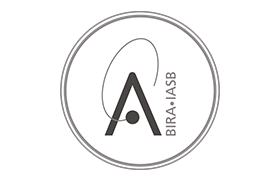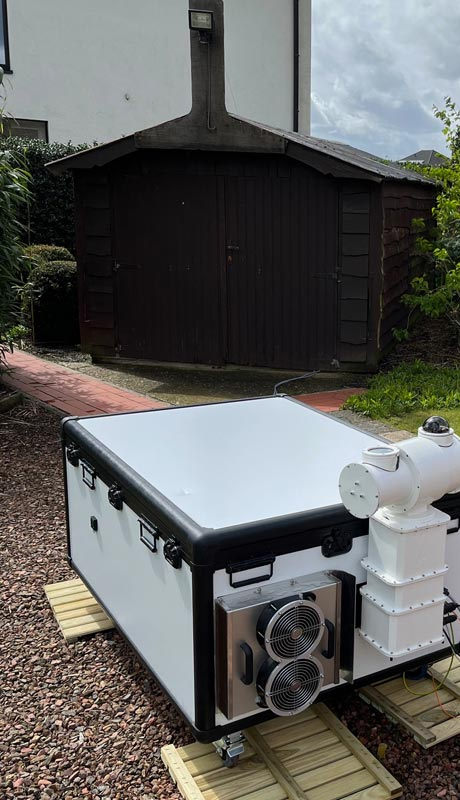
Royal Belgian Institute for Space Aeronomy
About BIRA-IASB
The Royal Belgian Institute for Space Aeronomy (BIRA-IASB) is dedicated to studying the Earth's atmospheric environment, which extends into interplanetary space. It specialises in investigating the evolution of atmospheric chemical compositions, taking into account dynamic and structural considerations, not only for Earth but also for other solar system bodies, including planets like Mars or Venus and comets.
BIRA-IASB has the capability to execute an end-to-end space mission focused on atmospheric research, known as aeronomy. Their involvement covers various aspects from mission planning to implementation, encompassing goal definition, concept development, hardware and software design, pre-flight characterization, operation management, data processing, validation, and finally, scientific data exploitation and service delivery.
Areas of expertise: Space physics, the field of science that studies the Sun, the particles and the radiation it emits, as well as how this affects the planets of the solar system. An important subject is the solar wind, a kind of cloud of charged particles (plasma) ejected by the Sun. When it reaches our planet, this wind interacts with the Earth and the space around it. We call this space weather. Experts at BIRA-IASB understand and model this phenomenon using data gathered from various ESA space missions.
Climate change is another significant area of study. Human activities contribute significantly to environmental degradation and require informed decisions to mitigate and adapt to these challenges. BIRA-IASB works on several large-scale international programmes and projects, such as the ESA Climate Change Initiative (CCI), the Copernicus Atmosphere Monitoring (CAMS) and Climate Change Service (C3S).
Air pollution poses risks to human health and the environment, necessitating precise measurements of pollutant levels worldwide. The TROPOMI instrument aboard the Sentinel-5P satellite helps achieve this objective, enabling detection of pollution sources and measuring small-scale atmospheric effects on regional climate change. Additionally, BIRA-IASB validates satellite data, ensuring accuracy and reliability.
Monitoring the Earth's stratosphere involves observing long-term changes in ozone concentration, greenhouse gases, volcanic aerosols, polar stratospheric clouds, and other relevant substances. Besides gathering data, with a future mission like ALTIUS, researchers use computer models to predict the evolution of stratospheric chemistry, facilitating comparisons with satellite and ground-based observations.
Understanding the Sun's full solar spectrum variations during its eleven-year cycle is crucial due to its role as a reference point for identifying specific gases in an atmosphere and its significance across multiple scientific disciplines, particularly climate research. BIRA-IASB contributes to refining knowledge of the solar spectrum by creating specialised instrumentation, assessing solar radiation, and studying terrestrial impacts.
Comparative studies of Venus and Mars offer valuable insights into Earth's more nuanced climate system. BIRA-IASB plays a leading role in investigating these planets via involvement with SOIR on Venus Express, NOMAD on ExoMars, and the forthcoming VenSpec-H project targeting Venus. BIRA- IASB is also contributing to COMPLIMENT on board the future Comet Interceptor mission.
New space missions include ESA's PICASSO CubeSat and ALTIUS initiatives. Engineers continuously design cutting-edge instruments for upcoming ventures toward Venus and Jupiter, driven by relentless scientific curiosity. We are involved in the calibration of the MAJIS instrument on board JUICE, on its way to Jupiter.
In addition to conducting fundamental research, BIRA-IASB provides practical information on air quality, ozone layer status, solar UV index, space weather, etc., benefiting contemporary society. Collaborations extend beyond research, involving high school education, outreach efforts, contributions to WMO ozone assessment reports, and IPCC climate change evaluations.
Finally, the Belgian User Support and Operations Centre (B.USOC) scientific programme at BIRA-IASB supports scientific experiments on the International Space Station. Operational assistance includes preparing, implementing, and analysing experiments while serving as an ESA Facility Responsible Centre for certain payloads on board the Columbus module, managing tasks such as command issuing, real-time supervision, and data transmission to experiment teams.
BIRA-IASB is located in Belgium, Avenue Circulaire 3, 1180 Brussels.
BIRA – IASB and SCARBOn
In the SCARBOn project, BIRA-IASB utilizes its expertise in atmospheric sciences and environmental monitoring. The institute's role involves significant contributions to the development and validation of novel sensor technologies used for the precise measurement of greenhouse gases. BIRA-IASB is focused on deploying an advanced, compact ground-based spectrometer within a temperature-controlled enclosure, featuring a solar tracker and integrated with the NanoCarb prototype for precise, simultaneous solar absorption measurements and validation (see image). Through their advanced research capabilities and involvement in space missions, BIRA-IASB plays a critical role in enhancing the methodologies used for monitoring the Earth's atmosphere within the SCARBOn project, aiming to provide more accurate and frequent data for climate research.

FTIR spectrometer capable of performing solar absorption measurements with the help of the solar tracker.